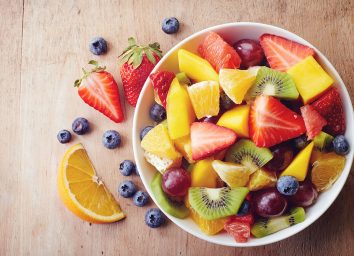Secret Effects of Eating Plums, Says Science
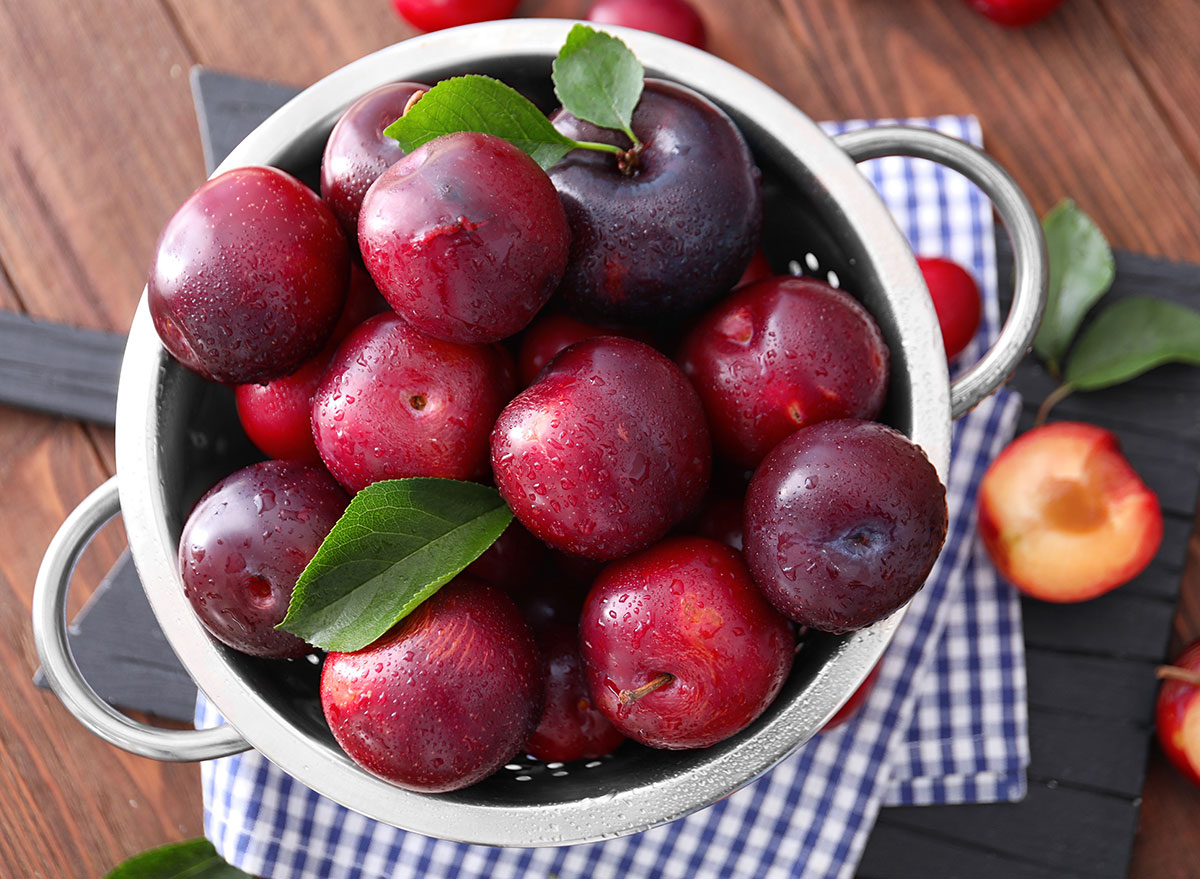
As the days grow shorter and the nights get cooler, there’s nothing like savoring the last few bites of all that amazing summer produce. Tangy tomatoes and sweet peaches seem to always be late summertime favorites. Tart, juicy plums also are a late summertime delicacy but seem to be underrated compared to its peachy counterpart. And yet, when you dive into all of the incredible health benefits that come with eating plums, you may think twice about which fruit you actually want to snack on. Eating plums, or even dried plums (prunes), have been linked in multiple studies to benefit your body in incredible ways that you probably don’t even know.
We listed a few of the secret effects you likely don’t know about this underrated summertime fruit. Here’s why you should snag a few plums next time you’re at the farmer’s market before summer draws to a close, and for even more healthy eating tips, be sure to check out our list of The 7 Healthiest Foods to Eat Right Now.
Plums protect your heart.
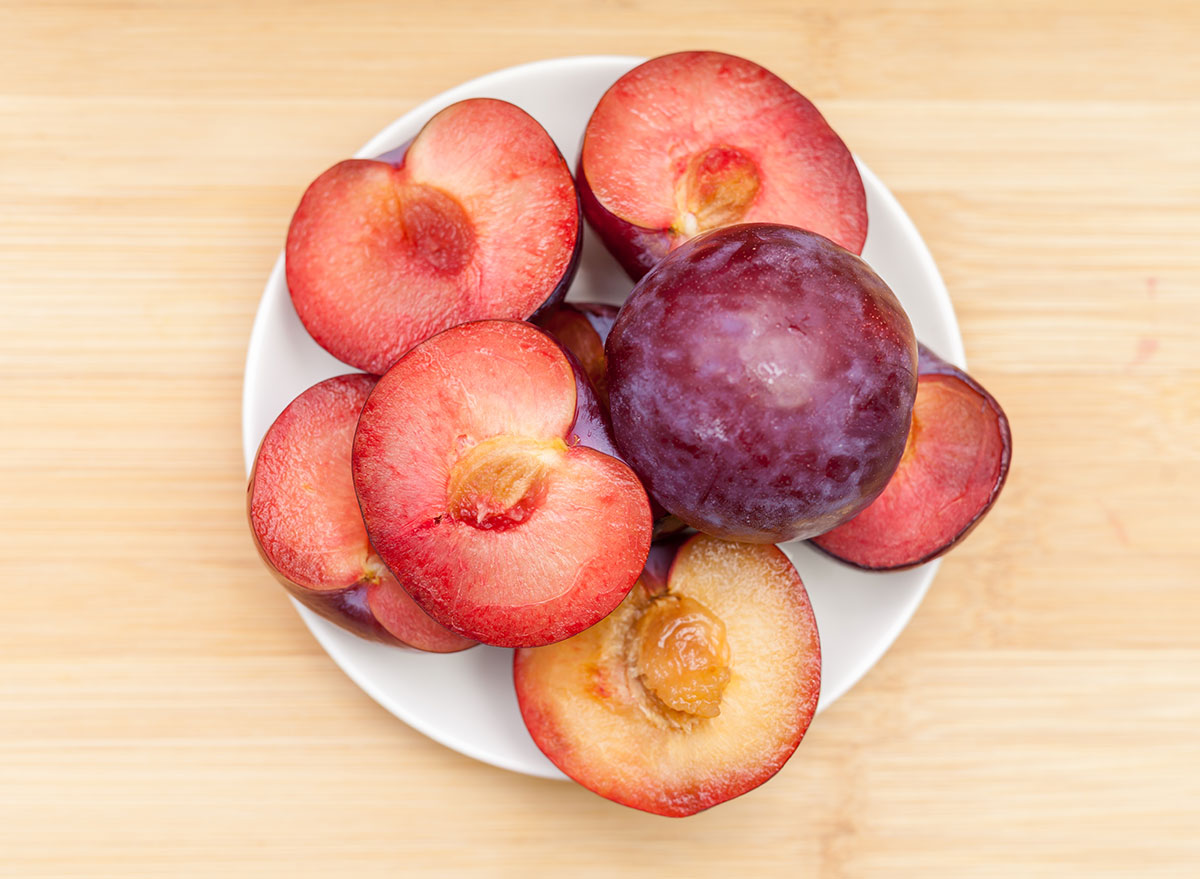
Eating a diet rich in fruits and vegetables can help reduce blood pressure thanks to their antioxidants, and enjoying prunes (dried plums) specifically can benefit hypertension in your body. According to a clinical study published in the Journal of Ayub Medical College, prune consumption is linked to a reduction in blood pressure and even linked to reduced LDL blood cholesterol levels. Given that these two health concerns are linked to a higher risk of cardiovascular disease, reducing blood pressure and LDL cholesterol will ensure a healthier heart.
Plums are anti-inflammatory.
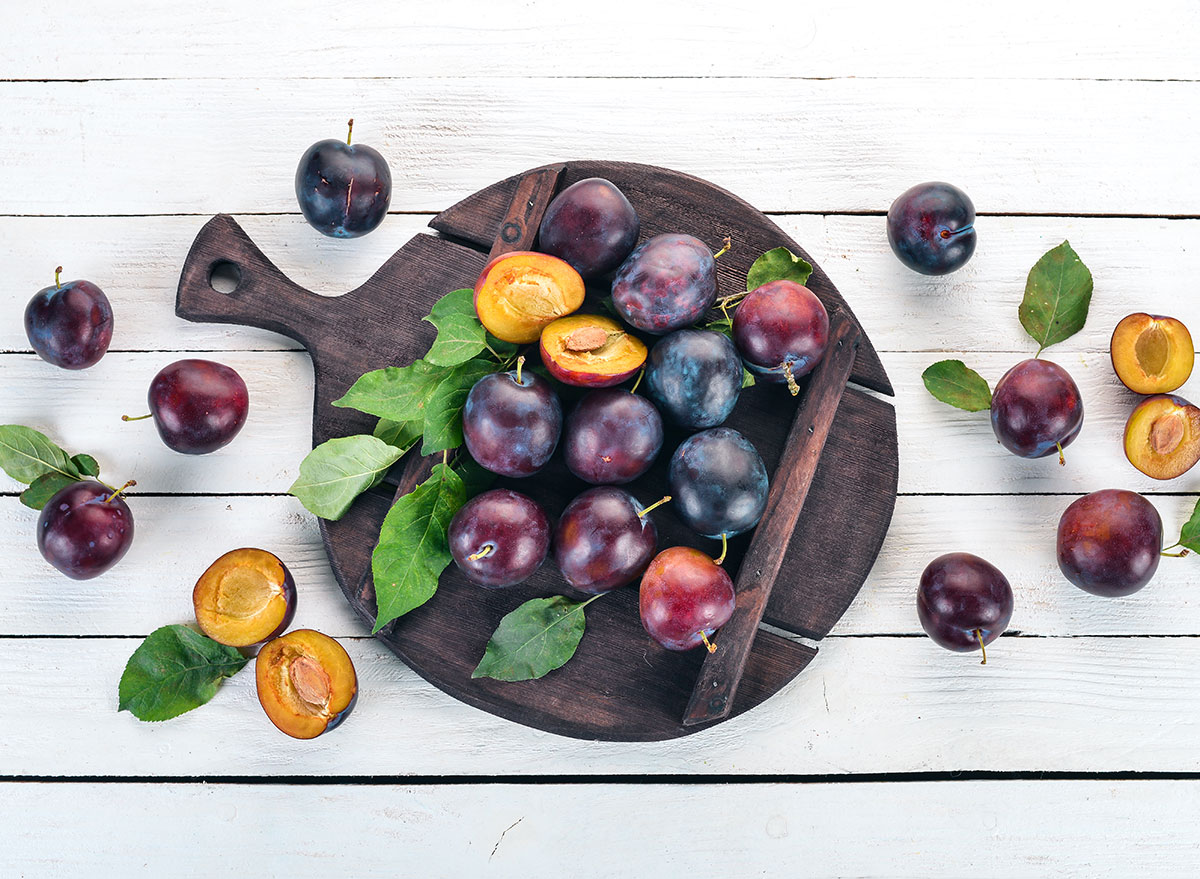
Speaking of antioxidants, plums are full of them. One study published by the journal Food & Function found that the polyphenols in dried plums are potent anti-inflammatory and antioxidative agents. Polyphenols are powerful antioxidants that can help fight off free radicals in your body, reducing oxidative stress and the risk of developing a chronic disease.
Here’s Why You Need Antioxidants In Your Diet—And How To Eat More Of Them.
Plums can help control blood sugar.
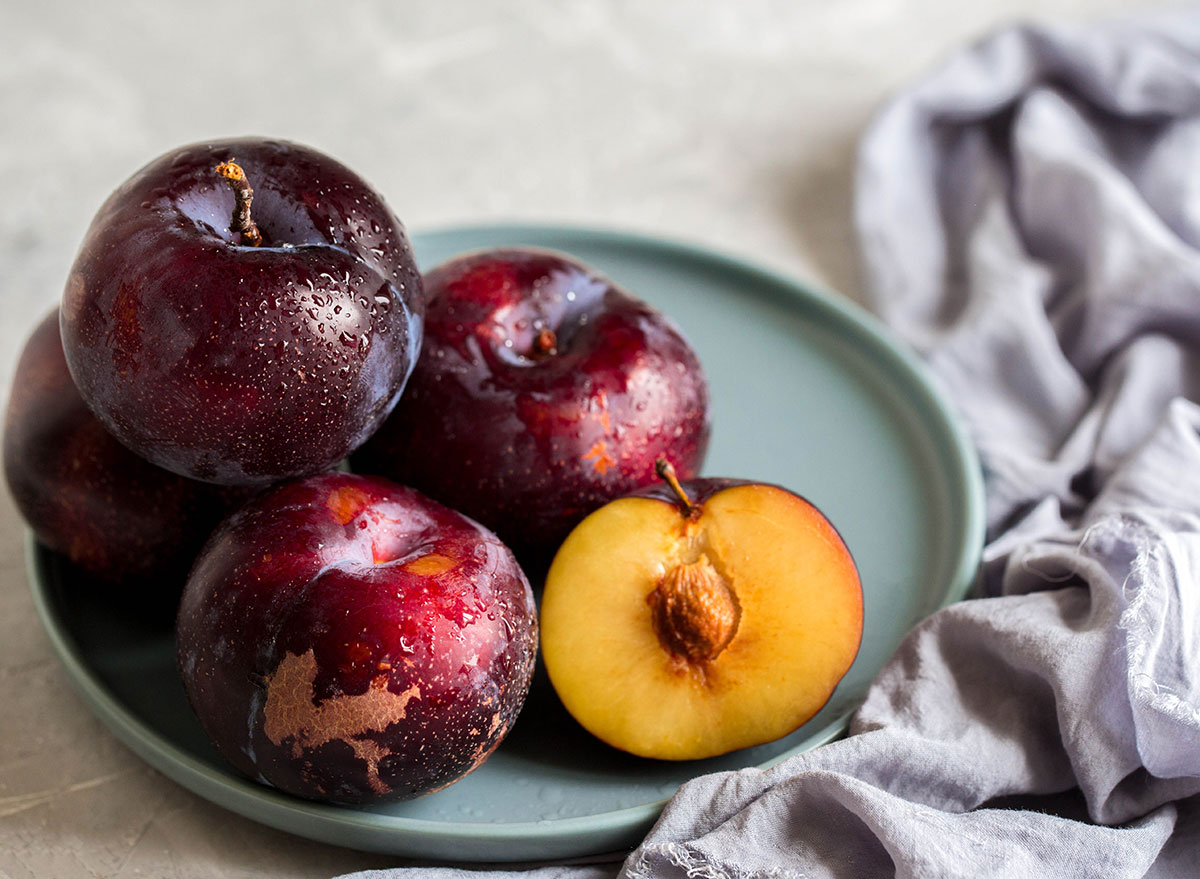
In a review published by the Critical Reviews in Food Science and Nutrition, dried plums have been linked to increased feelings of fullness which, in turn, can reduce the intake of food. A reduced intake of food can help to control weight-related diseases such as obesity, diabetes, and cardiovascular. This can potentially be linked to the fact that plums do not cause a sharp rise in blood sugar and insulin release in the body, which tend to be the factors that cause such diseases.
Plums could boost your memory.
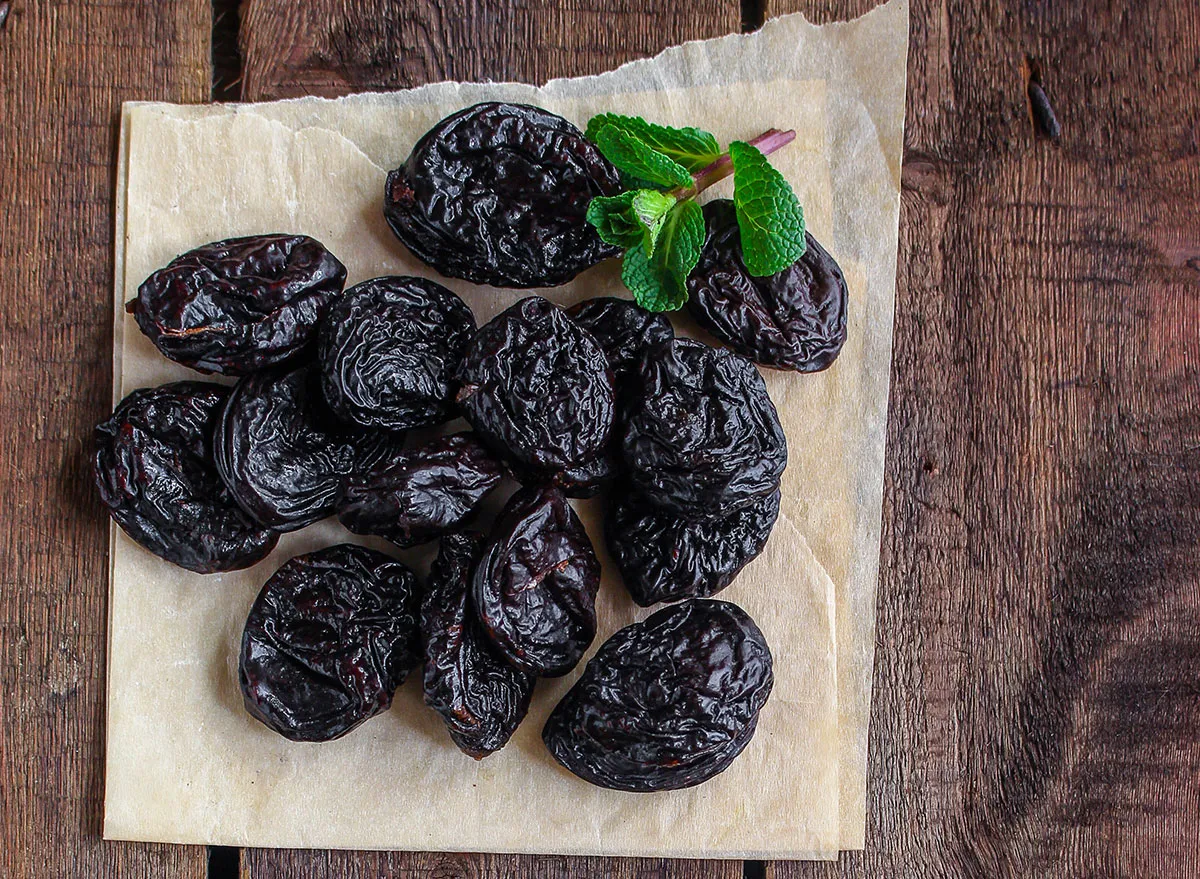
Antioxidants aren’t the only benefit of eating plums. According to a review published by Phytotherapy Research, plums also have memory-improving characteristics. The review looked at 73 articles, including 25 human studies, and found that plums have been linked to improved cognitive function.
The study does make it clear that dried versions of plums were used over fresh fruit in human trials, so more research would be needed to make such a claim. However, plums are rich in anthocyanins—a type of antioxidant in the flavonoid group that gives food a blue, red, or purple pigment (like blueberries). According to the Journal of Biomedicine and Biotechnology, anthocyanins are credited to enhance cognitive performance.
Plums can improve bone health.
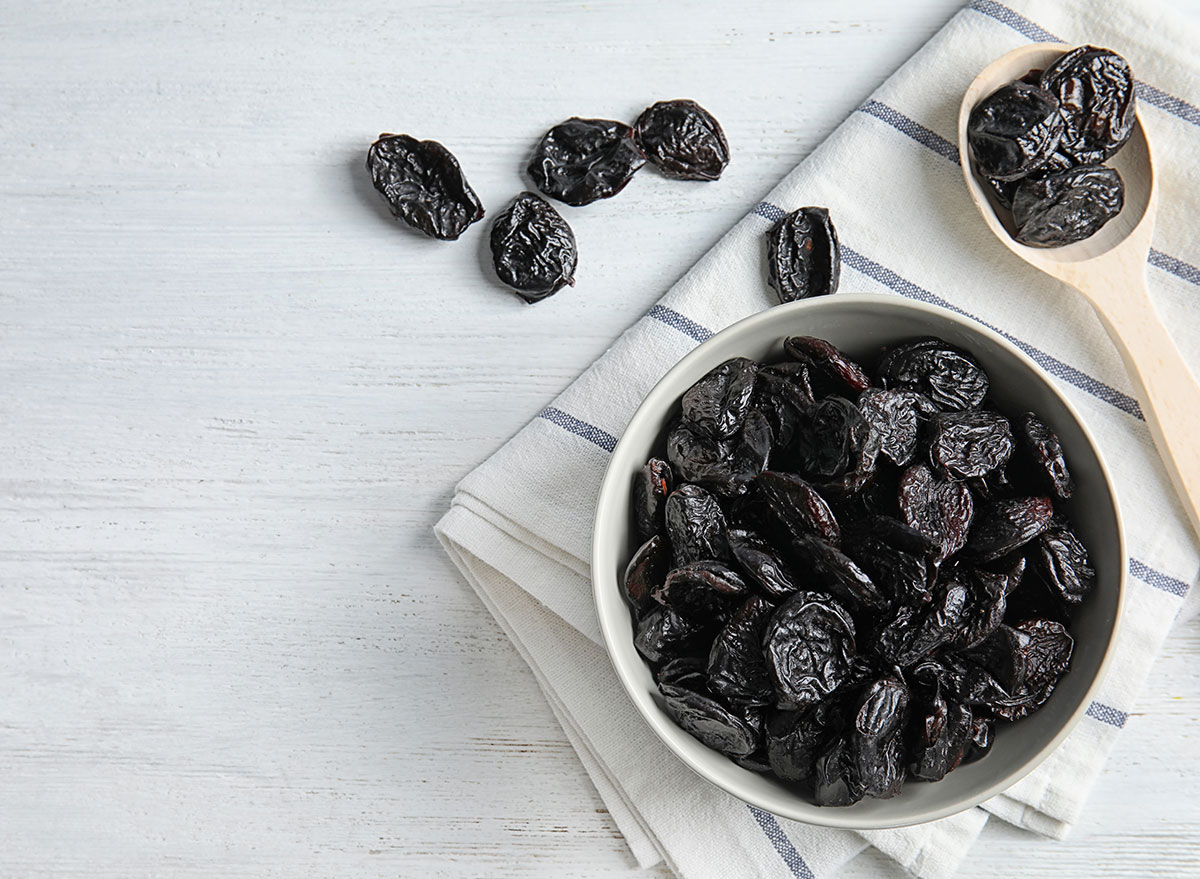
According to Ageing Research Reviews, animal studies as well as a 3-month clinical trial found that consuming dried plums can have positive effects on bone density. The studies showed in some cases dried plums have helped to reverse the loss of bone due to skeletal unloading, which leads to decreased bone formation and bone mass. This is especially important as you get older given that your bone mass decreases as you age causing an increased risk of developing osteoporosis.
Plums can help with constipation.
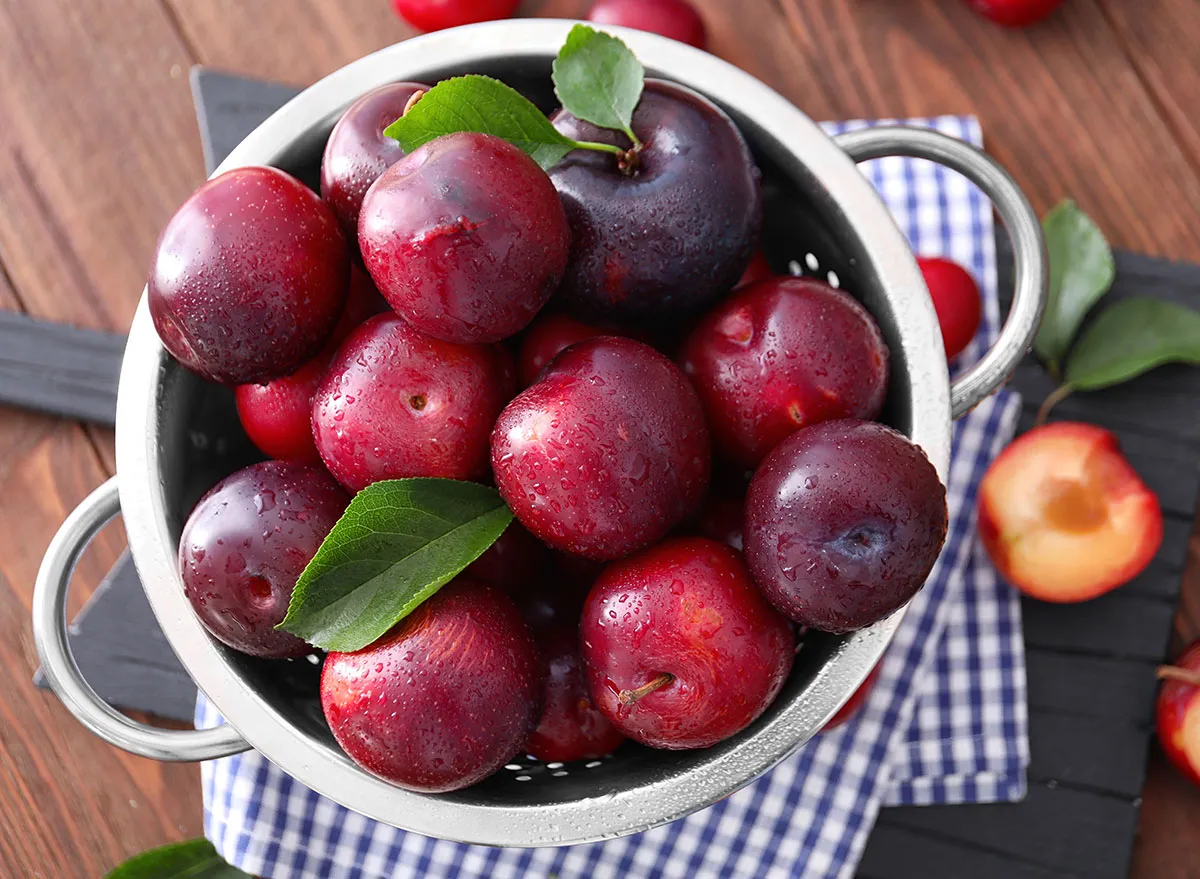
This one is likely not as much of a surprise as the others, but still equally as important to note. Plums—and prunes—are both fruits that are linked to assisting with constipation relief. According to Pediatric Gastroenterology, Hepatology & Nutrition, plums contain sorbitol, fructose, fiber, and phytochemicals which can all help with constipation relief.
Prunes, specifically, can be beneficial for constipation due to their high levels of fiber. One review from Alimentary Pharmacology and Therapeutics even points out how prunes appear to be superior in improving stool frequency compared to psyllium, which is typically used to help with constipation relief.
For more healthy eating tips, read these next:
